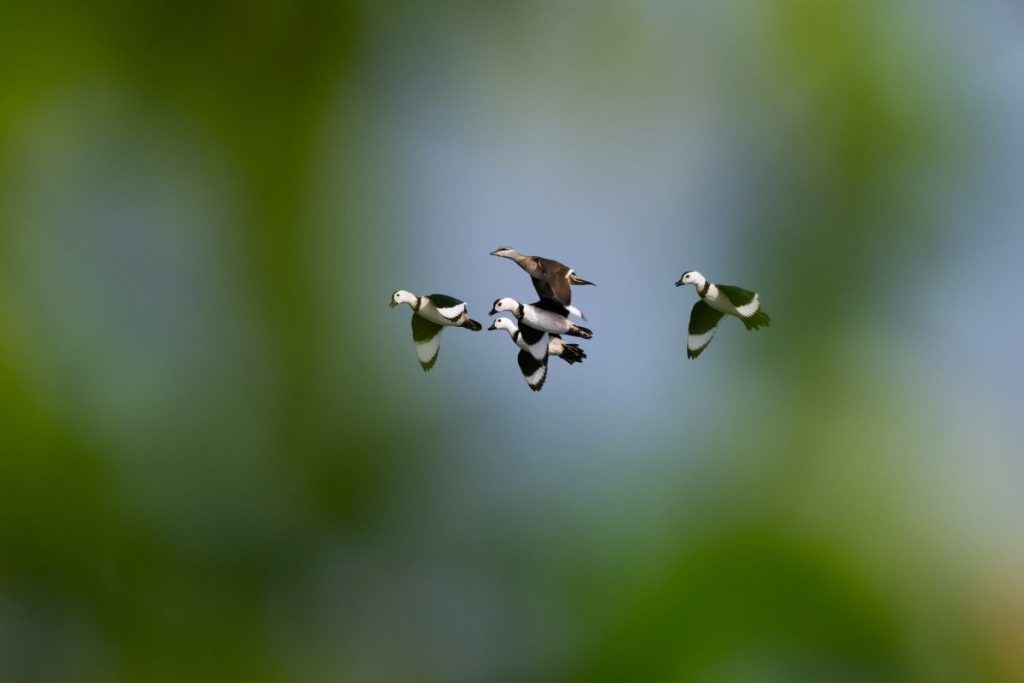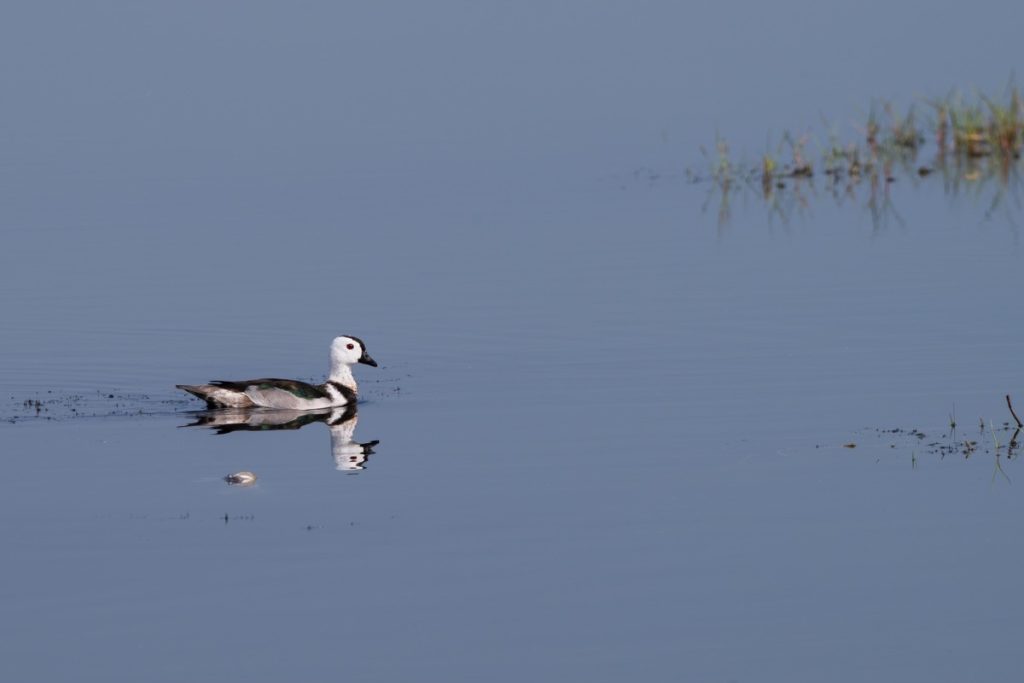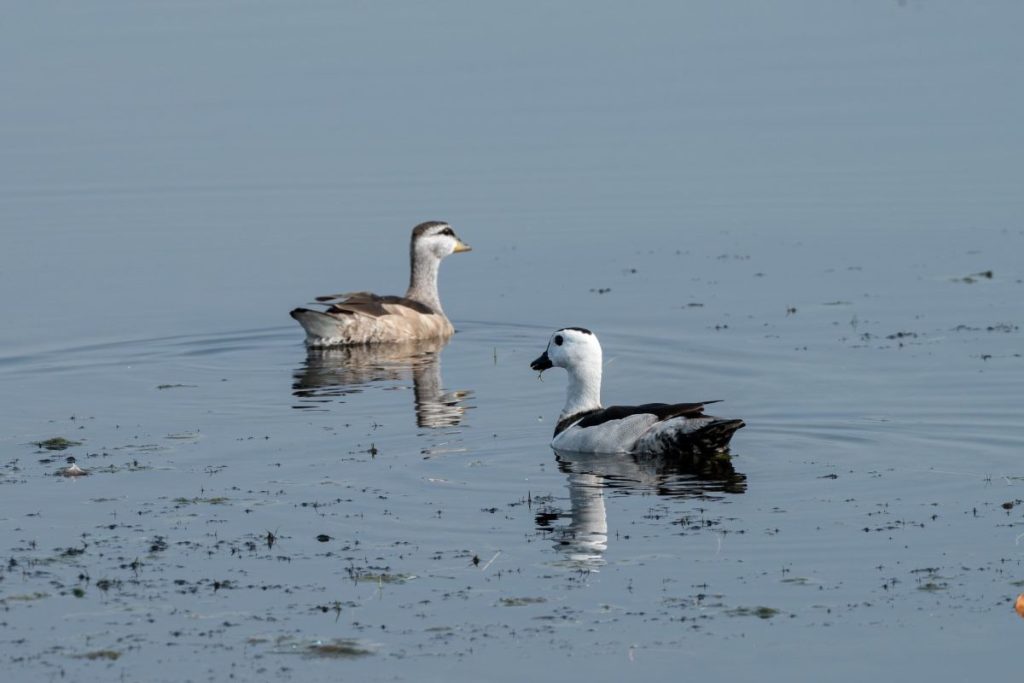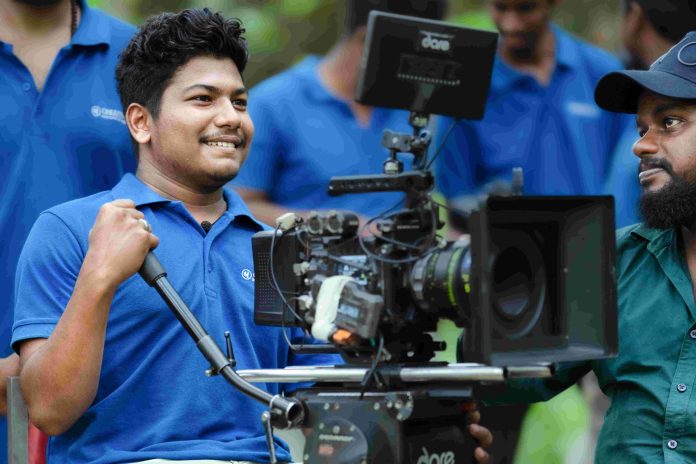The Cotton Pygmy Goose is a small duck from Asia and Australia that feeds on aquatic plants, nests in tree hollows, and migrates yearly. Males display during courtship, and chicks leap from the nest after hatching.
The tiny perching duck, known as the cotton pygmy goose or cotton teal (Nettapus coromandelianus), breeds throughout Asia.It typically roosts and nests on trees near bodies of water and often appears in pairs or larger groups of pairs. They fly well and tend to spread out, especially during the winter. The rains fall throughout their breeding season. The range of this species is extensive throughout Asia, reaching as far afield as Australia.

Winged Wonders Cotton pygmy goose soar above the wetlands.
The availability of water and rainfall affect population movement. In the summer, certain populations spread out more and appear seasonally, such as in Afghanistan. They forage in lakes and ponds with emergent vegetation, where they are most prevalent. In South Asia, they even inhabit tiny village ponds. They mostly reside in lagoons in Australia. They roost in trees. During a post-copulatory display, the male arches his neck, showcasing the white wing patches and neck feathers, though courtship displays remain mostly unrecorded.

Calm Waters A beautiful reflection captures the goose’s elegance.
They build their nests mostly in natural tree hollows, like tree trunks, and pair up during the breeding season, which is mostly during the rainy season. Although the males help find nests, only the female lays six to twelve ivory-colored eggs per clutch and incubates them.

Peaceful Pair Two pygmy goose swimming through calm waters.
Chicks jump from the nest, which may be five meters above the ground, to follow their parents into the ocean. Moreover, intraspecific brood parasitism likely causes the larger clutches. After hatching, the active chicks quickly follow the mother, who guides and defends them. As a result, they are precocial, learning to dive, swim, and forage for small invertebrates, plants, and insects.
Copyrights : All the photos and texts in this post are the copyright of John Thomas and Creative Hut Institute of Photography and Film. Their reproduction, full or part, is forbidden without the explicit approval of the right owners.


